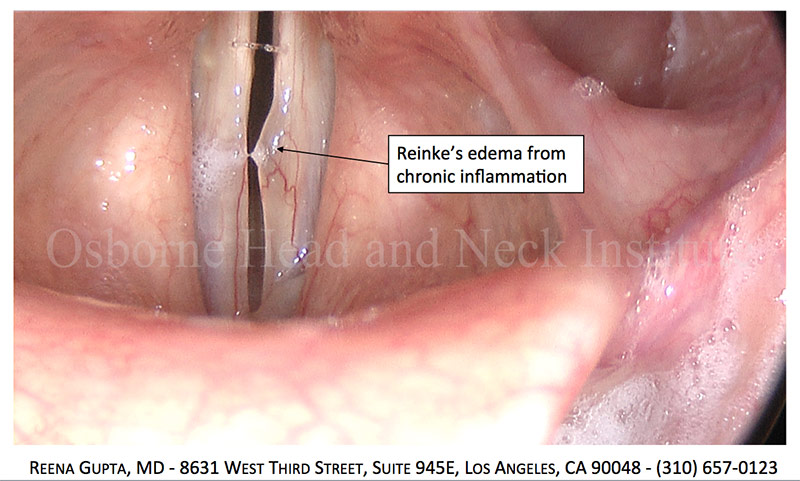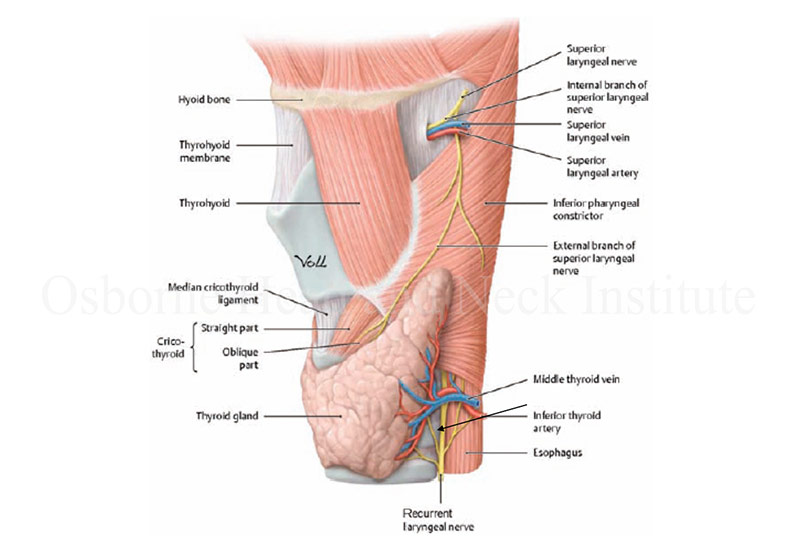- Question: How do the ingredients in e-cigarettes and vaporizers affect respiratory health? - August 16, 2019
- Bad Technique and Vocal Injury - January 9, 2019
- Is Edible Marijuana Dangerous for the Voice? Myths Dispelled - December 18, 2018
- Surprise! You have a hemorrhage - January 31, 2018
- Graves’ Disease: Treatment Overview - September 25, 2017
- Adele and the Stigma of Vocal Injury - July 11, 2017
- Vocal Curbside Consult: How does the thyroid affect the voice? - May 16, 2017
- Vocal Curbside Consult: How do hormones affect the voice? - May 3, 2017
- Vocal Curbside Consult: How do emotion and stress affect the voice? - April 17, 2017
- Vocal Curbside Consult: Vocal Recovery After Illness - April 7, 2017
Every week, Dr. Reena Gupta asks the voice community to pose their questions about voice and vocal health. One question is chosen weekly to be answered in depth. If you would like to receive updates on Vocal Curbside Consult, please follow Dr. Gupta on Facebook: https://www.facebook.com/profile.php?id=100007842967320
Q: How do thyroid problems affect the voice? What is the vocal impact on the voice for folks who struggle with hypothyroidism or hyperthyroidism? What if there is a growth in the thyroid gland? Can this cause problems down the line if it is removed surgically?
A: The thyroid gland serves an extremely important role in the human body. Thyroid hormones are responsible for the body’s homeostasis, the body’s basic functioning, including the metabolic rate, heart and digestive function, and muscle control. As such, disorders of hormone production can affect all the systems in the body. The thyroid can also compress or invade nearby structures when it enlarges or has growths within it.
HORMONE EFFECTS
Hypothyroidism: When thyroid hormone levels are extremely low, and uncorrected, the vocal folds may develop thickening of the vibrating layer. This is called myxedema and can occur in other areas of the body as well. Myxedema is a gelatinous thickening of the vocal folds, which causes a harsh, “smoker’s voice.” This occurs in varying degrees and, when severe, may require surgery. Very little research has been done on hypothyroidism and how it affects the voice, how frequently myxedema/ Reinke’s edema occurs, or best treatment options. For this reason, correcting hypothyroidism is extremely important.

Hashimoto’s thyroiditis: this is the most common cause of hypothyroidism. It is an autoimmune condition, where the body invades the thyroid gland. This eventually causes hypothyroidism through gland destruction.
Postpartum: up to 10% of women may become temporarily hypothyroid after delivery
Medication side effect
Hyperthyroidism: When thyroid hormone levels are elevated, a patient is hyperthyroid. Voice symptoms may include a tremulous voice, due to the hypermetabolic state the patient is in. This resolves with treatment of the underlying cause. There are many reasons hyperthyroidism can develop including:
Graves disease: This autoimmune condition results in elevated levels of thyroid hormone and significant thyroid gland inflammation. Other symptoms include inflammation and swelling of the eyes resulting in bulging of the eyes.
Thyroid nodule: The thyroid gland frequently produces growths, called nodules. If a nodule produces excess thyroid hormone, it can result in hyperthyroidism.
GLAND EFFECTS (COMPRESSION OR INVASION)
The recurrent laryngeal nerves are located behind the thyroid gland. They are responsible for moving most vocal muscles. Injury can produce major voice symptoms. Another pair of nerves, the superior laryngeal nerves are located at the uppermost aspect of the thyroid gland and can also be injured by thyroid problems. These paired nerves (labeled below as the external branch of the superior laryngeal nerve) are vital for pitch elevation, as they supply the cricothyroid muscle. Thyroid nodules can cause compression and dysfunction of any of these four nerves. Cancer can invade the nerves, muscles, or even the larynx itself.

If surgery is undertaken for any condition of the thyroid, these nerves are at risk. Singers should be exceptionally cautious to have thyroid surgery by a team well-equipped to manage the potential for voice issues from thyroid surgery. However, singers should not avoid surgery, even for benign problems, out of fear of surgical injury. Thyroid nodules usually grow over time, and eventually may necessitate removal. However, delay in treatment results in a more complex surgery, with a higher incidence of voice complications. By working with a laryngologist, head and neck surgeon and endocrinologist as a team, the risks and benefits of each option can be considered to make the most appropriate decision.



